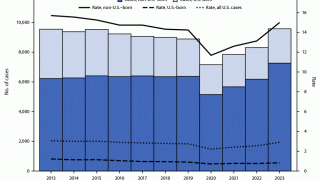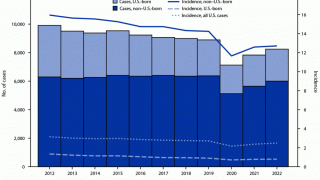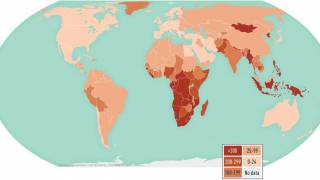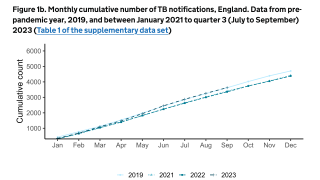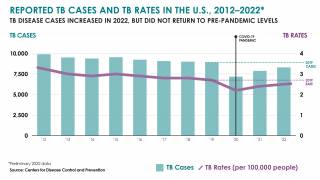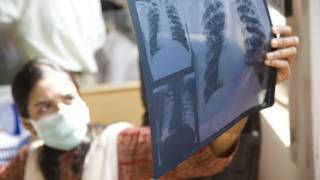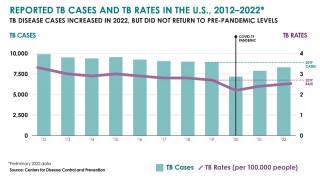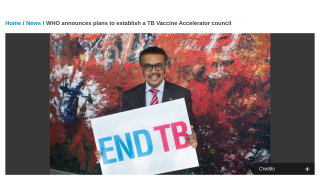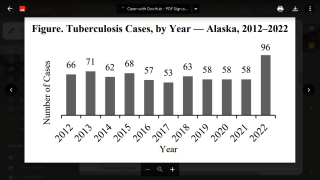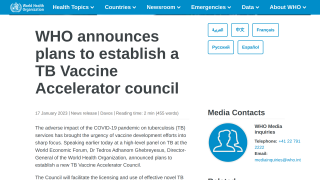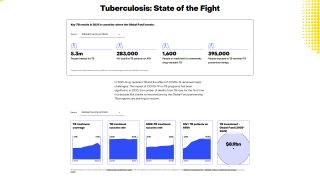100-Year-Old Vaccine Keeps on Protecting

A long, long time ago, the Bacillus Calmette-Guerin (BCG) vaccine was approved for use against tuberculosis (TB).
For generations, the BCG vaccine was given to infants to save lives.
The problem is that the BCG vaccine was the first—and the last—vaccine approved to prevent tuberculosis.
And yet, TB still kills around 1.5 million people every year.
La Jolla Institute for Immunology (LJI) Research Assistant Professor Cecilia Lindestam Arlehamn, Ph.D., said in a press release, "Technology has moved on, but not the tuberculosis vaccine, although there are many promising candidates in the pipeline."
"About a quarter of the world's population is infected with Mycobacterium tuberculosis," adds Lindestam Arlehamn. "We have to do more."
Lindestam Arlehamn and her colleagues at LJI, Linköping University, Murdoch University, and Vanderbilt University recently set out to finally uncover precisely how the BCG vaccine works. A better understanding of the BCG vaccine could empower the creation of more effective TB vaccines.
Their findings, published in eBiomedicine on December 8, 2021, point to a significant subset of T cells called Th1* cells.
Following BCG vaccination, these Th1* cells are a key marker in the body's "immune signature" following BCG vaccination. By looking at this immune signature, vaccine developers can ensure their TB vaccine candidates are enlisting the right kinds of immune cells.
For the study, Lindestam Arlehamn and her colleagues followed a group of 17 adults in Sweden who had never received a BCG vaccine or contracted tuberculosis. First, the researchers took a blood sample before the participants received a BCG vaccine. Then, the researchers took another sample eight months after vaccination.
This time jump allowed the researchers to see which kinds of immune cells would remember the BCG vaccine and jump into action to help prevent tuberculosis.
The researchers looked at the immune cells in these samples using tools such as flow cytometry, RNA sequencing, and DNA methylome analysis.
The Th1* cells stood out.
After 100 years, the researchers had uncovered a clue to the very workings of BCG vaccination.
The researchers also found more MAIT cells in the vaccinated participants. MAIT cells are essential players in the intersection between the innate and adaptive arms of the immune system.
This was not the first time TB researchers took note of Th1* cells and MAIT cells. These are the same cells shown to respond to natural Mycobacterium tuberculosis infections.
Now Lindestam Arlehamn could see that Th1* and MAIT cells were key players after BCG vaccination as well.
Going forward, scientists can compare the entire T cell repertoire, or TCR, described in this study to their vaccine data.
"Now we can look at whether we want to trigger these immune cells using novel vaccines," says Lindestam Arlehamn.
"How can we get these immune cells to increase and do what they're born to do, so to speak?"
Of course, the new study gives scientists just a snapshot of BCG vaccine responses. Lindestam Arlehamn says it will be important to compare the results to immune responses in younger subjects in different parts of the world. Kids typically have a better response to BCG vaccination which prevents more severe TB cases.
"Kids have a different immune system. They're not as developed, and there are differences compared to adults," she says.
"So it would be interesting to look at the immune signature in kids."
In addition to preventing TB, Bacillus Calmette-Guerin is the most common intravesical immunotherapy for treating early-stage bladder cancer. It's used to help keep cancer from growing and help keep it from coming back, says Cancer.org.
BCG has been one of the most successful immunotherapies and has been the "standard of care for patients with bladder cancer" since 1977.
The National Institutes of Health supported the study. These researchers disclosed no industry conflicts of interest.
PrecisionVaccinations publishes fact-checked research-based vaccine news.
Our Trust Standards: Medical Advisory Committee




